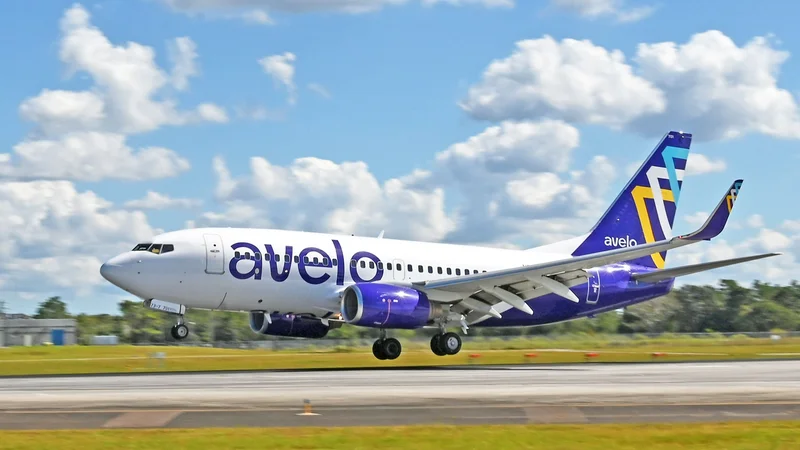Avelo's East Coast Bet: A Glimpse into Hyper-Local Air Travel's Future
Avelo Airlines is making some interesting moves, and while headlines might focus on route adjustments, I see something much bigger: a potential blueprint for the future of hyper-local air travel. It's not just about budget flights; it's about reimagining how we connect with the world, starting right in our backyards.
The news is this: Avelo is consolidating its network, focusing on East Coast airports, and delaying major expansion until they start receiving their Embraer E195-E2s in mid-2027. They're pulling back from some routes, like the Redmond–Burbank flights, and doubling down on others, adding new routes from places like Wilmington, Delaware, and Lakeland, Florida. Some might see this as a retrenchment, a sign of struggle. I see a strategic pivot.
East Coast Focus: A Proof of Concept?
Why the East Coast? Avelo's director of network planning, Mike Corcoran, said it himself: they need to raise brand awareness. But I think it's more than that. The East Coast, with its dense population centers and smaller, underserved airports, is the perfect testing ground for a new kind of air travel. Think of it as a giant, real-world experiment. Can you build a sustainable airline by focusing on smaller, regional airports and offering ultra-low fares? Can you create a loyal customer base by providing convenient, hassle-free travel options that bypass the mega-hubs and all the stress that comes with them?
Imagine this: instead of battling traffic to get to a major airport, fighting for parking, and navigating endless security lines, you hop on a quick, affordable flight from your local airport. Suddenly, a weekend getaway is within reach, visiting family becomes easier, and exploring new cities becomes an impulsive adventure. That's the promise of Avelo's strategy, and it's a promise that resonates deeply with the way I think about the future of travel.
Avelo is betting that people are willing to trade the frills for convenience and affordability. $35 flights to Chicago or Nashville from Concord, North Carolina? That's a game-changer for a lot of folks. $35 flights announced at Concord airport: What to know And it's not just about leisure travel. Think about the small business owner who needs to visit clients, the consultant who needs to attend meetings, or the entrepreneur who needs to scout new locations. Suddenly, air travel becomes a viable option for a whole new segment of the population.

The key to making this work, of course, is efficiency. That's where the Embraer E195-E2s come in. These new-generation aircraft are designed to be fuel-efficient and cost-effective, allowing Avelo to operate routes that wouldn't be profitable with larger, older planes. They're also the key to Avelo's future expansion, allowing them to return to the West Coast and connect the entire country with their hyper-local network. Will they offer a dual-class configuration? That would be interesting, wouldn't it?
Avelo isn't the only player in this space. Breeze Airways, Allegiant, and even the big boys like American and Southwest are all experimenting with different approaches to regional air travel. But Avelo's laser focus on secondary East Coast airports sets them apart. They're not just adding a few routes here and there; they're building an entire network from the ground up, and that's a bold move.
This isn't without its challenges, of course. Avelo needs to build brand awareness, convince people to fly from smaller airports, and compete with established airlines. They also need to manage costs, maintain reliability, and provide a positive customer experience. But if they can pull it off, they could revolutionize the way we travel.
When I first saw Avelo's strategy, I honestly just sat back in my chair, speechless. This is the kind of thinking that reminds me why I got into this field in the first place. The potential here is enormous, not just for Avelo, but for the entire aviation industry. The E2 is really going to enable them to serve the West Coast in a more efficient way. For a long time, they had dual operations on the West and East Coasts. It’s really challenging to run an airline of their size in those two disparate geographies without any connectivity in the middle. The E2 is going to enable them to go back there, probably in a smarter, more effective way.
However, let's not forget the ethical considerations. As air travel becomes more accessible, we need to be mindful of its environmental impact. We need to invest in sustainable aviation fuels, develop more efficient aircraft, and find ways to offset carbon emissions. The future of air travel needs to be both convenient and responsible.
So, What's the Real Story?
Avelo's East Coast strategy isn't just about surviving; it's about thriving. It's about creating a new kind of air travel that's more accessible, more convenient, and more human-centered. It's a bold bet, but it's a bet I'm willing to make. The future of air travel is taking off, and it's starting right here, on the East Coast.
